Table of Contents
What is a plant based diet?
A plant based diet is based on foods that come from plants. This includes vegetables, whole grains, legumes, nuts, seeds and fruits.
Is a plant based diet the same as a vegan diet?
Veganism is a lifestyle that focuses on not harming animals. A major part of this is food. Vegans by definition should follow a very strict plant-based diet along with other lifestyle requirements.
While it’s not strictly necessary to do so, plant-based diets are often health-focused.
See Veganism Vs. Plant-Based – What’s The Difference?
There are many reasons for choosing a plant-based diet. Being plant-based is not a club or a cult and how strict a person is about their diet is up to them.
Plant-based diet benefits: Why follow a plant based diet?
A plant based diet is good for your health
- Plant-based diets can help reduce your risk of heart disease.
- A plant-based diet can reduce the risk of type-2 diabetes
- Research shows that people who eat plant-based diets tend to be leaner than those who don’t
- Based on research, eating a plant-predominant diet may be one of the most powerful tools in cancer prevention.
- Reduces the risk of other chronic illnesses according to the Journal of Geriatric Cardiology
More sources are at the bottom of this article.
A plant based diet reduces the majority of animal suffering
The vast majority of animals are raised on factory farms. Most are bred to grow or produce at unnatural rates in order to yield more meat, milk and eggs.
By choosing to avoid fish, meat, dairy and eggs you decrease the demand for such food. Each purchase you make is a vote. Lower demand means, fewer animals will be forcibly breaded for food.
Positive environmental impact from your plate
Going on a plant based diet is the most positive thing you can do for the planet as an individual.
- Stopping livestock emissions
- Veganism conserves water – The worst nut milk for the environment (Almond milk) is many times better than dairy.
- 41% of the water used for agriculture goes toward growing livestock feed
- The multi-billion dollar fishing industry pollutes and destabilizes our oceans.
- One-third of the Earth’s landmass is dedicated to raising animals for consumption
- Cattle ranching is responsible for a vast majority of deforestation

What are the dangers of a plant based diet?
Plant-based diets carry some risk of inadequate protein, vitamin, and mineral intake. But these risks are readily overcome by choosing the right foods and, when necessary, supplements.
Most known dangers associated with plant based diets or veganism are due to the lack of eating a variety and quantity of food or other eating disorders. Other dangers include medical conditions where individuals react to certain foods due to allergies or intolerances.
Without an underlying medical condition, for most people who have a variety of plant-based food, the only nutrient that definitely requires supplements is Vitamin B12. As with any dietary changes, you need to be careful about what you eat. Sudden changes to your diet will also cause discomfort such as bloating.
Not all plant-based diets are the same. At Strong with Plants, our preference is a whole food plant-based diet (also known as a whole plant based diet) with a focus on health and wellbeing.
No content on this site, regardless of date or author, should ever be used as a substitute for medical advice from your doctor or other qualified clinicians.
Can you be an athlete on a vegan / plant based diet?
It is becoming common knowledge that athletes don’t need animals in their diet to build and maintain muscle.
- Lewis Hamilton – Racing Champion
- Novak Djokovic – Tennis Champion
- Tia Blanco – Professional Surfer
- Venus Williams- Tennis Great
- Alex Morgan: USA Soccer Star
We can have a long list, but we picked a few names that may be known to all who don’t necessarily follow any sports.
What can you eat on a plant based diet?
You can eat anything where the source of all the ingredients are plants or plant-derived.
Vegetables
- Potatoes
- Tomatoes (technically a fruit!)
- Onions
- Carrots
- Bell peppers
- Broccoli
- Cucumbers
- Salad leaves
- Lettuce
- Celery
- Mushrooms
- Corn
- Garlic
- Spinach
- Green beans
- Cabbage
- Sweet potatoes
- Cauliflower
- Asparagus
- Kale
Fruits
- Bananas
- Strawberries
- Grapes
- Apples
- Watermelon
- Oranges
- Blueberries
- Lemons
- Peaches
- Avocados
- Pineapple
- Cherries
- Cantaloupe
- Raspberries
- Pears
- Limes
- Blackberries
- Clementine
- Mangoes
- plums
The list is endless. These are just some of the most popular fruits and veg.
Grains
- Wheat
- Oats
- Rice
- Corn
- Barley
- Millet
- Rye
- Sorghum
Fake grains (but fine)
- Quinoa
- Amaranth
- Buckwheat
Beans
- Cannellini beans
- Fava beans
- Fayot (Flageolet) beans
- Red beans
- Lima beans
- Mung beans
- Kidney beans
- Navy beans
- Pinto beans
- Black beans
- Chickpeas (garbanzo)
- Peas
- Soybeans
- Black-eyed peas
Nuts
- Pistachios
- Hazelnuts
- Cashews
- Walnuts
- Almonds
- Macadamia
- Peanuts (Not really a nut!)
- Brazil Nuts
- Pine Nuts
- Pecans
Seeds
- Flaxseeds
- Hemp Seeds
- Pumpkin Seeds
- Sunflower Seeds
- Chia Seeds
- Pomegranate
- Sesame
Other
- Coffee (without cream or using alternatives to diary)
- Tea
- Most alcohol
- Dark chocolate
Here is a list of food you need to avoid:
Dairy
You have to swap your latte for an Oat milk latte (which tastes better anyway). Giving up yoghurt, cheese, butter and many other products with milk will be more difficult.
You can no longer just order any pizza or eat any candy bar without checking all the ingredients or labels.
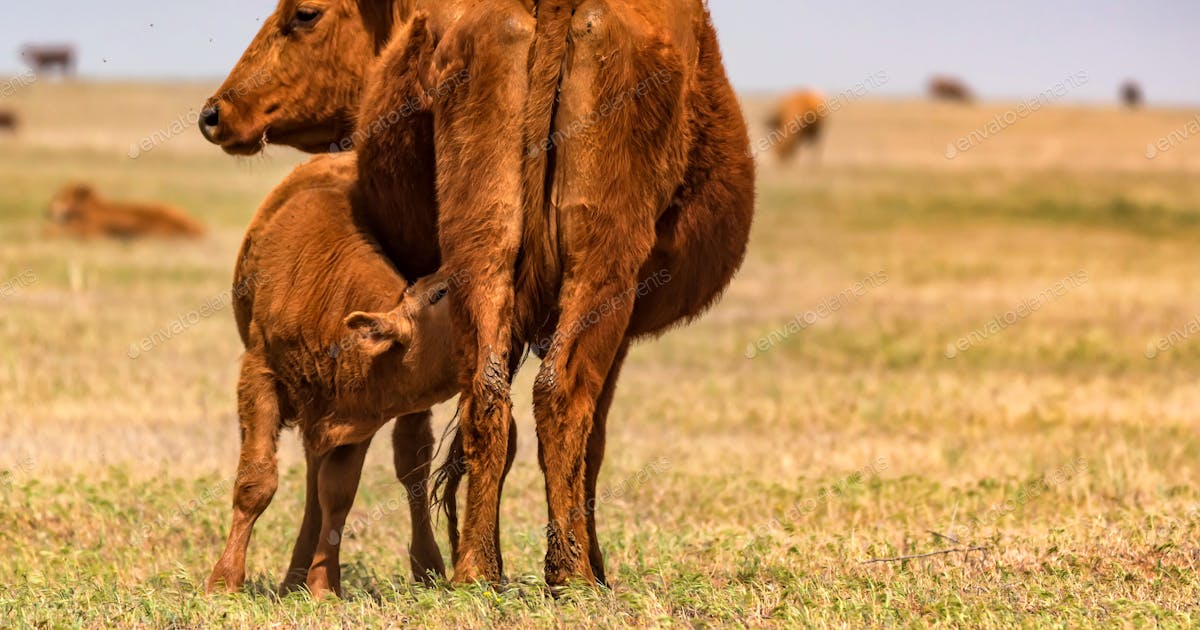
Eggs
Giving up eggs isn’t difficult for most people, but giving up most commercial cakes is. Some types of bread and many baked products also use eggs. Find out some of the types of bread that are safe for vegans here.
Meat, Fish, Chicken
I guess most people know where bacon, steak and chicken nuggets come from. So we won’t go into detail.
Hidden Animal-derived ingredients
- Casein and Whey – found in protein powder.
- Gelatin – Marshmallows, capsules, tablets.
- White sugar – not an issue in Europe due to legislation. But not all white sugar is animal free.
- Lecithin – Cereal, candy, chocolate, baked goods, vegetable oil sprays
- Suet – Margarine, pastries
- Vitamin D3 – Supplements, fortified foods
A 7-Day Menu Guide for a Plant Based Diet:
This is a simple guide for beginners.

DAY 1
Breakfast
Healthy Oatmeal with Fruit and Nuts
Toppings: Nuts of your choice, fresh dried fruits.
Lunch
Cauliflower Rice Bowl
Addons: Black Beans, Corn, Avocado and Salsa.
Dinner
Veggie Burrito
Fillings: Tofu, Onion, Green Bell Pepper, Avocado, Tomatoes.
DAY 2
Breakfast
French Toast
Main ingredients: Almond Milk. Flour, Maple Syrup, Nutritional Yeast and Cinnamon.
Lunch
Black Bean Tofu Burger
Main ingredients: Tofu, Black Beans and mushrooms.
Dinner
Mushroom Vegetable Tomato Soup
Main ingredients: Mushroom, Tomato Sauce
Perfect with: Toasted Wheat Bread or a Side Salad.
DAY 3
Breakfast
Banana Pancakes
Main ingredients: Oat flour and Whole Wheat pastry flour.
With maple syrup.
Lunch
Meatless “Beef” Stew
Made with: Mushrooms, Potatoes and Tomato Sauce.
Dinner
Kale Tofu Curry
Main ingredients: Kale, tofu and soaked almonds.
DAY 4
Breakfast
Apple-Lemon Breakfast Bowl
Main ingredients: Dates/Raisins, Walnuts, Lemon Juice, and Apple.
Lunch
Oil-Free Vegan Fried Rice
Main ingredients: Brown Rice, Tofu Scramble, Vegetable, Soy Sauce.
Dinner
Extra-Crispy Baked Tofu Nuggets
Main ingredients: Tofu, Baking Powder.
DAY 5
Breakfast
Vegan Carrot Waffles
Main ingredients: Carrots, Baking Powder, and Flaxseed.
Lunch
Vegan Tofu Bean Chili
Main ingredients: Tofu, Creamy Beans, Tomato Sauce.
Dinner
Vegan Teriyaki “Chicken” Stir Fry
Main ingredients: Tofu, Broccoli, Teriyaki Sauce, Bell Pepper.
DAY 6
Breakfast
Tofu Scramble
Main ingredients: Tofu (crumbled extra-firm), Oat Milk, and Turmeric.
Lunch
Vegan Picadillo
Main ingredients: Plantains, Black Beans, Yellow Rice, and Tomato Sauce.
Dinner
Tomato Braised Mushrooms
Main ingredients: Bella Mushrooms, Not-Beef Stock, Tomato Paste, Coconut Oil.
DAY 7
Breakfast
Avocado Toast
Main ingredients: Wheat Bread, Ripe Avocados, Virgin Olive Oil.
Lunch
Pink/Red Bean Stew
Main ingredients: Dry Beans, Tomato Sauce.
Dinner
Vegan Tofu Meatballs
Main ingredients: Tofu and Tomato Pasta Sauce.
In conclusion
The good
Going plant-based is good for you, good for animals, and good for the planet and almost everyone on it.
The bad
Plant-based is bad for the billion-dollar meat industry, diary industry, egg industry, fish industry, health industry, insurance and secondary medical-related industries and the media companies which support and are supported by these industries.
The amazing
It’s still possible to feed into corporate greed even on a plant-based diet. But we really encourage eating local, eating whole food instead of “alternatives”, eating fresh and seasonal and perhaps growing some of the food yourself.
Regardless of what you decide, I hope this guide has helped you become more informed or at least for you to take more control of your health by researching, speaking to others and seeking professional advice.
No content on this site, regardless of date or author, should ever be used as a substitute for medical advice from your doctor or other qualified clinicians.
Sources and further reading
- The right plant-based diet for you – health.harvard.edu
- A Vegan Diet: Eating for the Environment – The Physicians Committee
- A Plant-Based Diet Can Reduce Your Risk for Type 2 Diabetes, If You Do It Correctly – healthline.com
- Plant-based diets crucial to saving global wildlife – theguardian.com
- Less Animal-Based Food, Better Weight Status
- A plant-based diet for the prevention and treatment of type 2 diabetes – ncbi.nlm.nih.gov (The National Center for Biotechnology Information)
- Veganism Vs. Plant-Based – What’s The Difference? – Strong With Plants


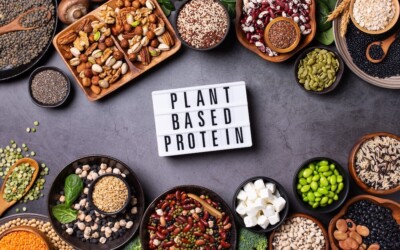








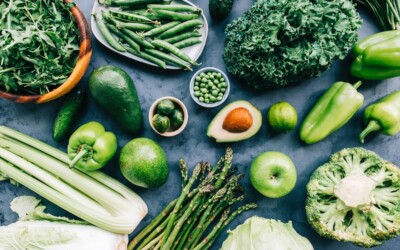


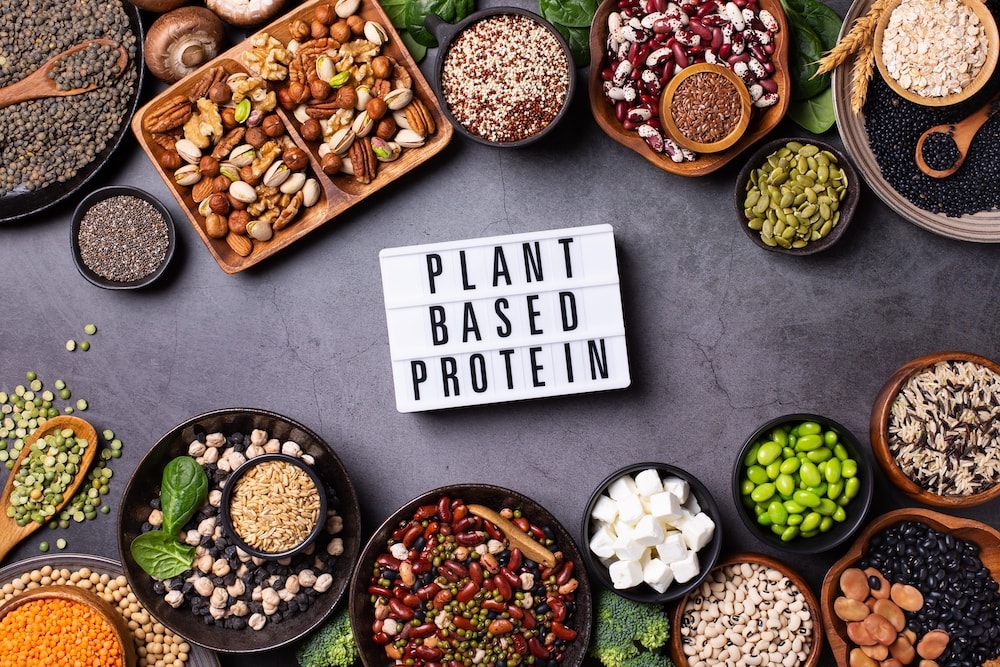

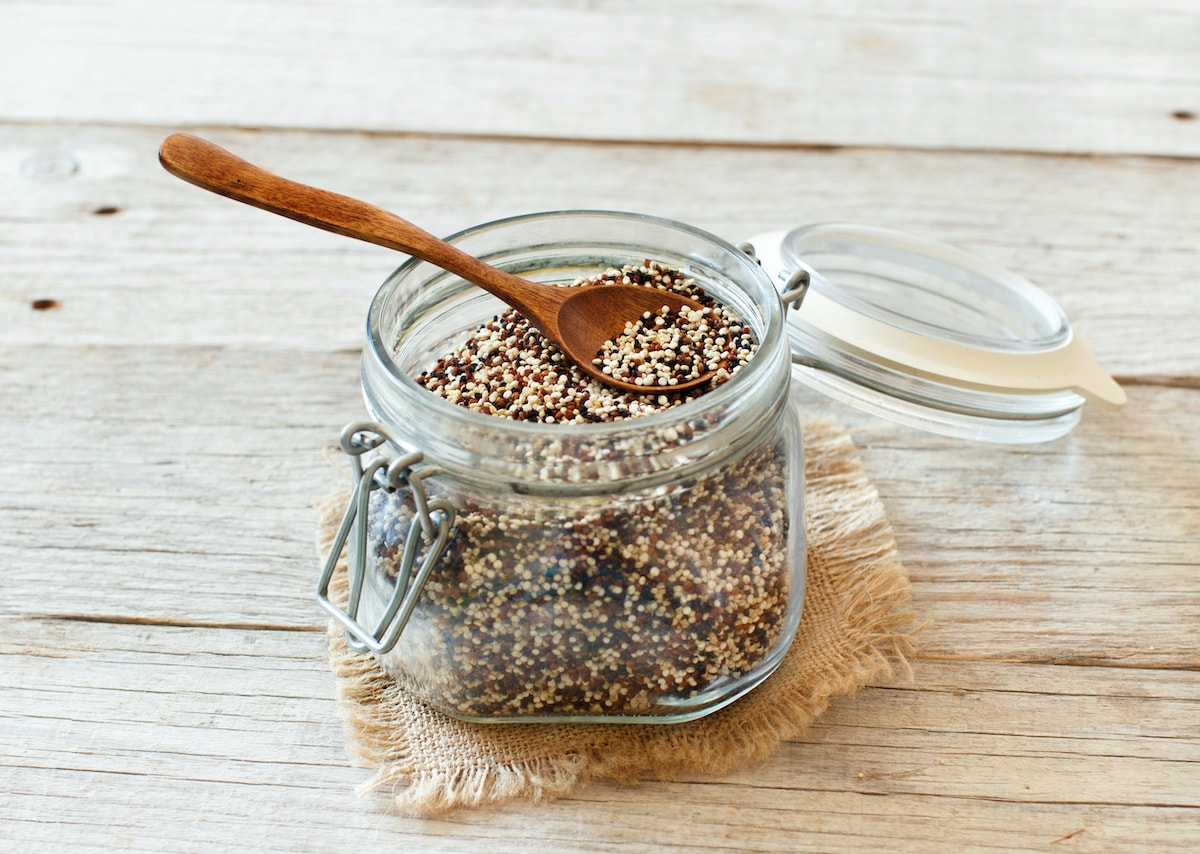
Great ideas! I have done full plant-based for periods of time in my life and it’s always helpful to find new ways and ideas!
This is a heart healthy lifestyle. There are so many health benefits for following a plant based diet. Interesting menu items. ?
For me personally, I would need to ease into strictly plant based. I have wanted to transition to a pescatarian diet and I think your meal plan would help with the transition to pescatarian then to plant based. I appreciate the helpful info.
Agree with you, I prefer also whole-foods than processed but for others they may find it easier. This article will help others to transition with your meal guides too.
Some excellent suggestions. We have 2 Vegans in our family, and have slowly over the years reduced our meat and dairy intake dramatically. It has made a huge difference in our overall health and wellness. Great post! 🙂
I really like that you included a 7-day menu, super easy to follow. Thank you for sharing.
The menu really makes transitioning to a plant based diet simpler. Great article
Great post!
I needed vegan ideas, thank you.
Love how you’ve clearly laid it out. Have been trying to include more of this in our diet, it’s not so easy for kids so gotta be careful. We’ve also gone to Oat milk instead of dairy which is super for us, it’s gentle on the tummy.
Love the ideas for meals to make. This makes it much easier for someone considering jumping into this diet!
This is a great, as you put it, beginners guide! So helpful to have a 7-day menu.
I love any diet where coffee is included 🙂 Really very useful post, thank you.
I’ve been slowly transitioning to a plant-based diet for two months now. Sadly, I cannot let go of chicken. 🙁 The 7-day menu program you shared would be really helpful to help me push harder. Thank you!! 🙂
You can tell how much work you have put into this guide, Congratulations! It is a fantastic start point and I will certainly be using many of your suggestions. Thanks a lot for the hard work and for sharing!
Good post. I moved to a vegan diet long back and now I am fine, but it is true that at the beginning it was complicated as I didn’t know most of the options I had.
Oh wow- thanks for the info. This will definitely help in my goal.